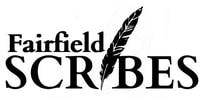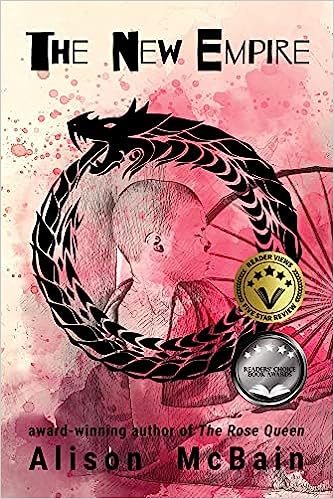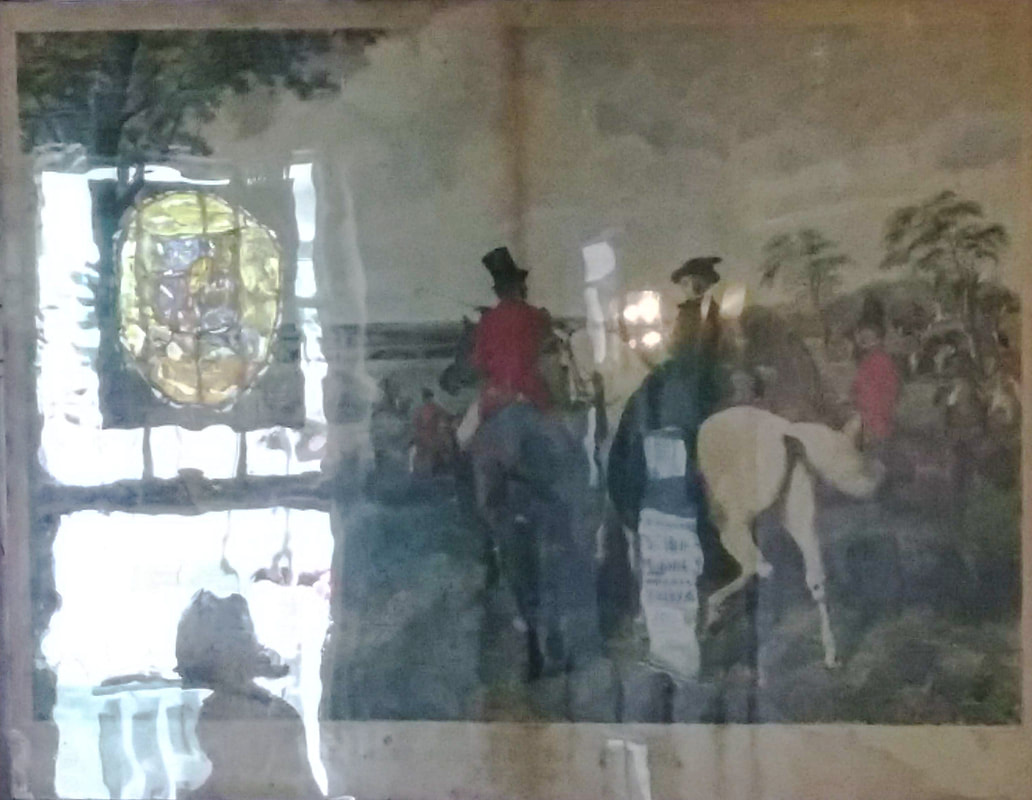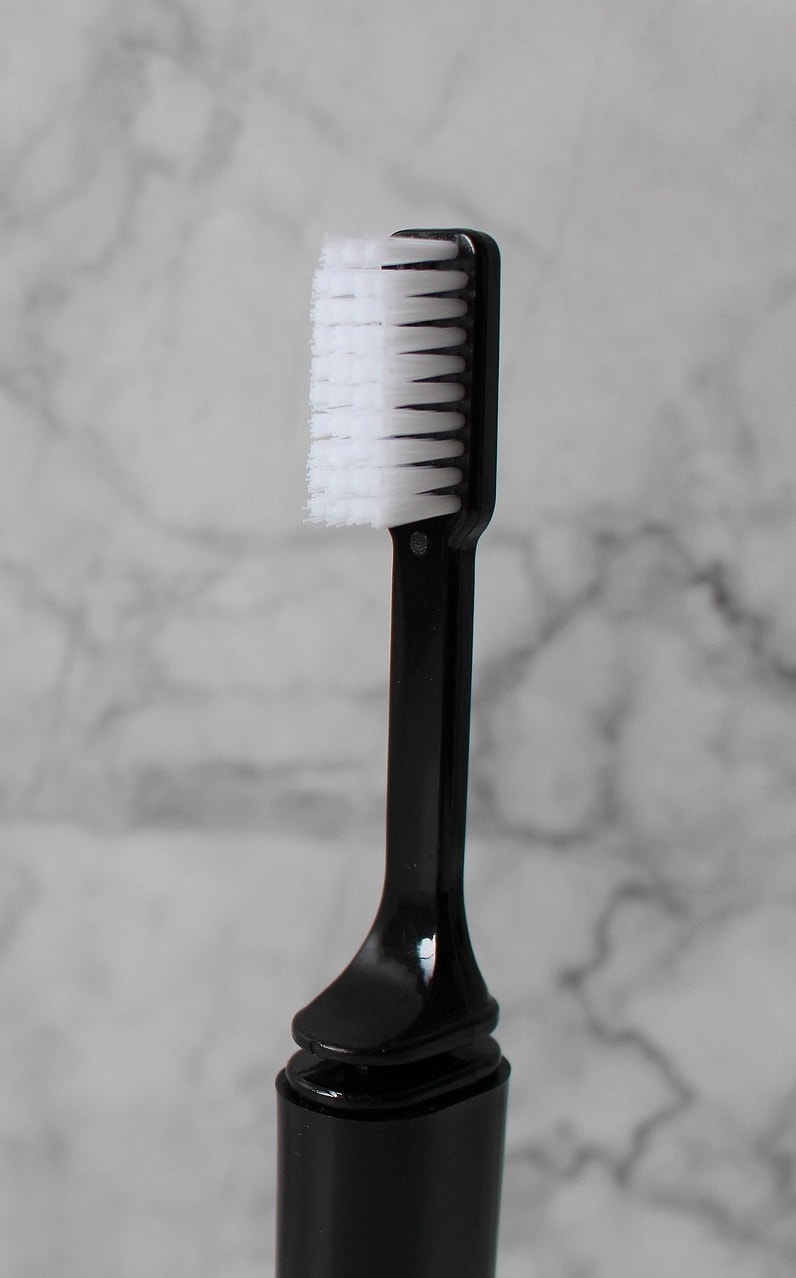ScribesMICRO
* * * Managing Editor: Edward Ahern * * *
* Associate Editor: Alison McBain *
* Special Features Editor: Matthew P.S. Salinas *
* Poetry Editor: Mary Keating *
* * *
Submissions Editors:
* Sarah Anderson * P.C. Keeler * P.M. Ray *
* Ira Rosofsky * Felicia Strangeways * Amita Basu *
* Julie Cadman * Scott Bogart * Micah C. Brown *
* Featured Contributor: Aaron H. Davis *
* Associate Editor: Alison McBain *
* Special Features Editor: Matthew P.S. Salinas *
* Poetry Editor: Mary Keating *
* * *
Submissions Editors:
* Sarah Anderson * P.C. Keeler * P.M. Ray *
* Ira Rosofsky * Felicia Strangeways * Amita Basu *
* Julie Cadman * Scott Bogart * Micah C. Brown *
* Featured Contributor: Aaron H. Davis *
A very hearty welcome to new editors joining our team:
Mary Keating as our poetry editor
& Micah C. Brown as a submissions editor
Issue # 35
November 15, 2023
Featuring the short scribblings of:
* Umi Agawa * Emma Burnett * Lori Carson *
* Hardy Coleman * Aaron H. Davis * Roann Enriquez *
* Greg Fewer * Loretta Lynne Finan * James Patrick Focarile *
* Tom Gadd * Jeff Kennedy * Jim Latham *
* Thomas Malloch * Angelle McDougall * Kim Kjagain Moes *
* Becky Neher * John Sheirer * Cheryl Snell *
* Pippa Storey * Erin L. Swann * Huina Zheng *
* Umi Agawa * Emma Burnett * Lori Carson *
* Hardy Coleman * Aaron H. Davis * Roann Enriquez *
* Greg Fewer * Loretta Lynne Finan * James Patrick Focarile *
* Tom Gadd * Jeff Kennedy * Jim Latham *
* Thomas Malloch * Angelle McDougall * Kim Kjagain Moes *
* Becky Neher * John Sheirer * Cheryl Snell *
* Pippa Storey * Erin L. Swann * Huina Zheng *
Book Review
The New Empire
by Alison McBain
Reviewed by Matthew P.S. Salinas
|
About the Author: Alison McBain has 200+ short stories, poems, and articles published worldwide. Novels she’s penned have won the Foreword INDIES Award, Literary Classics International Book Awards, and Readers’ Favorite Book Awards. Her latest novel The New Empire is a finalist for the Canadian Book Club Awards. When not writing, Ms. McBain is the associate editor for the magazine ScribesMICRO, administrator of The Scribes Prize, and writes a silly webcomic called Toddler Times about the puns and perils inherent in raising three daughters. She lives in Alberta, Canada. |
For this month’s issue, I had the absolute pleasure of reading The New Empire by Alison McBain. This book was, in my humble opinion, extraordinary. The immense world-building, well-thought-out character development, and overall plot combined into an unforgettable reading experience.
The main narrative is carried on by Jiangxi, a former member of Chinese royalty who is sold into slavery and toils under his new master, Onas. The dialogue-driven action that takes place between the two main characters is rich with imagery and conveys the absolutely enormous stakes of the situation they find themselves in. I will do my best not to give away too much of the plot. The relationship between the two is so heavily nuanced and developed that none of the conversation seems forced or contrite, but rather flows as organically as the many rivers of the surrounding forest they dwell in. I also have to say that the character development of Onas and in-depth examination of who he is as a person and his motives was by far one of my favorite parts of the overall novel. His relationship with Jiangxi moves along the narrative in ways that I didn’t at first fully understand but found myself slowly realizing as more of the “bigger picture” was unveiled before me. I found the depth of the culture that was explored and all the subtlety of the foreshadowed events were perfectly engrained in the narrative and carried out with masterful execution. I wish I would have had time to go back and read this story again to pick up on things I’m sure I missed the first time around, and will, indeed, be reading this book again. The imagery throughout not only pulls one into the narrative but provides a beautiful picture of the people and environment they live in while never seeming long-winded or distracting from the narrative. The care put into the crafting of this novel demonstrates not only a mastery of the telling of a narrative but also puts the author’s love of writing on full display in a compelling manner that demands attention. The New Empire tackles everything from racism to social-political ideology to love, and at no point stops engrossing the reader in the daily lives of all of those involved. The character arcs are incredibly natural in a way that makes one forget they are reading a book and instead gives the overall impression of watching these events unfold before their very eyes. I would highly recommend this book to any lover of fiction, historical fiction, or someone looking for a complex narrative woven in a tapestry of imaginative word-play, compelling dialogue, and unforgettable characters. |
Poetry
|
Winter Kill by Aaron H. Davis Fall’s last gasp above the rill
where soon all will be frozen still floats through the trees with branches bare and through the frosty mountain air floats down into the valleys low where winter too will surely go floats to your ears and to mine allows us simply to divine that no matter what we will fall is lost to winter kill Passing Touch by Aaron H. Davis Brick by brick we built them up
block by block and stone by stone the hands that in the passing touched that helped to build both fort and home bit by bit we took them down with hand and sledge or missiles roar the hands that in the passing touched and took the dreams that were before * * * Aaron H. Davis is approaching seventy years of age in as grouchy a manner as possible, as a proper curmudgeon should. He was born in Connecticut, adopted at one years old, and began composing poetry when he was five. He worked for the school system in East Lyme and was known as the “scrap paper poet” because of the scraps of paper used to jot down his poetry.
|
Fiction
|
The Advantage of Perspective by Becky Neher The young pair padded down the sidewalk. A little uneasy, a little out of their element. Well-to-dos in a tumbledown district.
But flaunting an entitled swagger. Pointing and snickering, contorting their faces. But with a little fear under the hood. Garbage, needles, broken glass. Smelly liquids trickling down gutters. Sirens and growling engines. A fire beyond the shoddy tenements. Shouts, gunshots, industrial smog. Rough edges accentuated by the onlookers' reactions to the part of the city I called home. The scary thing for me: when I imagined things from their perspective, intricate, unruly, inequitable reality added up tidily, without injustice, without error. * * * Becky Neher is published in So Fi Zine, Friday Flash Fiction, 365tomorrows, Idle Ink and Microfiction Monday Magazine. She lives in Georgia.
The Field Goal Attempt by Tom Gadd Later, once the fire had burned down and the beer had run out and the first hints of morning light had separated the treetops from the night, we tried to puzzle out what had happened. Why Jacko had kicked Kruger full in the face when the big man had bent down to tie his shoe. As if taking off Kruger’s head was the only thing Jacko could do to prevent the downfall of all humankind. But then Hammer went off for a piss and Sly passed out and the first birds began to sing, and we never learned a thing.
* * * Tom Gadd lives in Kanata, Canada (which sounds more like the beginning of a drumroll than a place name), where he writes fiction mainly for the “Draft Folder” market that resides on his computer's desktop and in several USB sticks.
The Python by Umi Agawa The groans began well past midnight. My parents were out and I was alone in the house. Gripping a shovel, I followed the sounds into the basement. The heavy door that was always locked was now ajar. I slipped in.
Father was chained to the wall, arms outstretched. He let out a groan. Slithering between his bare legs was a giant python. Its tongue flicked in the air but stopped when I shifted closer. I brought the shovel edge down on its head. “No!” Father cried. In the pooling blood, the snake morphed. That was when I recognized my mother. * * * Umi Agawa is an author and a mom who enjoys writing creative stories as an escape from the everyday. She lives in Toronto, Ontario.
Dad by Lori Carson Hope is the symphony of hushed hums from hospital room equipment. Lines of faux normalcy dance across monitors, a choreography of false assurance.
Memories blur, like out-of-focus slides in old home movies. Raucous wheelbarrow rides dumping into leaf mountains. Belly laughs. His steady hand on the back of the banana seat, my wobbly arms on the handlebars. The childhood middle-of-the-night goodbye, me barely awake, his damp eyes in ethereal moonlight, his words choked, garbled. Lines drawn but invisible, the forced navigation of parental mine fields. Barbed wire emotions. Tonight’s manufactured rise and fall of his chest make us victims of postponed conversations. Time, the inconsiderate thief. * * * Lori Carson is an emerging writer of fiction and creative non-fiction. A former freelance journalist, she brings an
innate curiosity to stories exploring human behavior and relationships, examining the extraordinary within the ordinary. Lori’s work has appeared in Written Tales, Thirty West Publishing Afterimages, and has been recognized by Writer’s Digest Annual Competition. She lives in southern California. The Best Part of a Man by Cheryl Snell The man yawns and his spirit drops out. Released from its swaddle, it swirls in the air like foam on the head of a five o’clock beer. There are drinkers all over the world, watching the slow hands of the clock move but when this man falls down drunk, his wife blows her panicked breath into his mouth, blocking the spirit’s re-entry. She opens her lips to her first wail as a widow and the spirit slips into her; it’s the least it can do. The woman welcomes the best part of the man. She had been so lonely lately.
* * * Cheryl Snell’s books include several poetry collections and the novels of her Bombay Trilogy. Most recently her writing has appeared in Gone Lawn, Your Impossible Voice, Necessary Fiction, Pure Slush, and other journals. A classical pianist, she lives in Maryland with her husband, a mathematical engineer.
A Serendipitous Encounter Informs the Choice of Husband by Thomas Malloch Having two suitors who were both geologists had ceased to be amusing. It was time to decide. Mr. Sharply Handsome with his lustrous mane of obsidian-black? Or Mr. Quietly Observant with a face like weathered sandstone?
Then a voice, “May I join you?” Musings interrupted. The tearoom had become busy. Soon, she was discussing her dilemma with her new table companion. A retired geologist. “Bear in mind the professional divide,” he said. “Soft Rock men are the more thoughtful. They take their time. All that sedimentary contemplation, I suppose.” “And the Hard Rock men?” “Bastards,” he said. “Every one of them.” In such ways, do choices crystallise. * * * Thomas Malloch lives in the south-west of Scotland. In retirement, he tried his hand at writing, mostly short stories. Sometimes he even gets published. Examples of his work can be found in Reflex Fiction, Bath Flash Fiction, the barcelona review, New Writing Scotland, Gutter and 50-Word Stories.
The Marriage Code by Jeff Kennedy The conversation begins as she steps out of the shower. Neither of us can hear the other over the running water or the fan, but I’m not sure it matters.
“Honey,” I ask. “Did you talk to…?” “Yeah, I texted him yesterday.” “Do you still think we should…?” “Definitely. We talked about this. Don’t you remember?” “Oh, yeah. I forgot there for a second. But I’m not sure about…” “I think it’s worth the extra.” I hand her a towel. “I’m fine with it if you are.” “I’ll call tomorrow.” What can I say? She completes me. * * * Jeff Kennedy is a lifelong author and playwright, returning to writing after a long, unplanned hiatus. Jeff is a member of the Dramatists Guild. He is a past Thurber House and Erma Bombeck essay contest winner. Jeff’s short fiction has most recently appeared on Flash Fiction Magazine and ScribesMICRO.
Are You Drunk Enough to Tell Me the Truth? by Jim Latham You’re drunk.
No, I’m not. You never drive the speed limit sober. You might have a point there. Are you drunk enough to tell me the truth? About what? Me. You. Us. Anything. Dunno. There’s some left in the bottle. Fuck it. Let me out of the car. Why? I’ve had enough. You haven’t had any. I’ve had enough of you. Let me out. No. Why not? Dunno, to be honest. Because without me you’ll have nobody to blame for your fuckups? Sounds about right, actually. I can’t believe you admitted it. I must be drunker than I thought. * * * Jim Latham (he/him) hikes volcanoes and lives out of two zebra-print suitcases. Stories in or forthcoming from Eunoia Review, Bright Flash Literary Review, The Drabble, Fiction on the Web, ScribesMICRO, and Olit. Stop by jimlatham.com for all the deets; read weekly flash fiction on Substack at Jim’s Shorts.
Normal by John Sheirer He began with brush and floss, as any normal person would. But those couldn’t dislodge the crusty plaque that the hygienist warned against. So, he used the dental instrument he had pocketed when the hygienist’s back was turned. That didn’t work either, so he tried a fork and then a meat cleaver. Those didn’t work, so he scraped with a claw hammer, garden hoe, and pickaxe. Everything failed, and his follow-up hygienist appointment was tomorrow. So, he flipped the lawn mower, got down on hands and knees, and angled his mouth toward the whirring blades, as any normal person would.
* * * John Sheirer lives in Western Massachusetts and is in his 31st year of teaching at Asnuntuck Community College in Northern Connecticut. His most recent book is Stumbling Through Adulthood: Linked Stories. Forthcoming in fall 2023 is For Now: One Hundred 100-Word Stories. Find him at JohnSheirer.com.
|
Witchlings by Angelle McDougall The Witchling sisters stared at the empty space before them.
“Bring him back, Bea,” Esme said. “I’m trying.” Bea wrung her hands. “I don’t know what else to do.” “What’ll we tell Mom and Dad?” Tabi asked. “Maybe they won’t notice,” Glyna said. Esme glared. “Their son’s gone. How could they not notice?” “Girls, it’s time for dinner,” their mother called. “We’ll just have to tell them we were practicing a vanishing spell,” Esme said. All four girls stopped in their tracks when they saw their little brother sitting at the table. Esme whispered to Tabi, “Let’s try again tomorrow.” * * * Angelle McDougall is neurodivergent and a world traveler, retired college instructor, mother of adult sons, graduate of The Writers' Studio at Simon Fraser University (2022), and loom knitter. She lives in Edmonton, Alberta, and writes poetry, fiction, and non-fiction. She also enjoys chronicling the travel adventures shared with her author husband.
Sticks and Stones by Kim Kjagain Moes Alice is perched on the bridge, arms outstretched behind her like a mermaid on a pirate ship. She slips a little on loose gravel as she adjusts her footing. Pebbles ricochet off larger rocks as they plunge into the water, creating a symphony that Alice longs to join. Deep down, she knows jumping is the only way to avoid facing everyone’s disappointment and ridicule, yet second thoughts overcome her again. Alice hangs her head low, heart crashing in her chest, and retreats to the safe side of the railing.
“Chicken!” yells Billy as he cannonballs into the river, accompanied by an orchestra of laughter. * * * Kim Kjagain Moes, of Vancouver Island, BC, dabbles in flash, micro, and poetry. She unravels everyday events finding inspiration to meet the words climbing out of her mind. On writing, she says, “Write the life we live, explore the lessons not yet learned, and then, eat catharsis for dinner.”
Gladis' Revenge by James Patrick Focarile Grinding. Gnashing of teeth. The foreign taste of fiberglass lingers fresh in my mouth. I ram the rudder once more. Hard. It breaks free. I nudge it through the water. They think it’s a game. Without warning, I bite down. I shake the rudder back and forth like prey and fling it out of reach. It skips like a flying fish across the ocean’s surface. Then I breach, my black and white skin glistening in the morning sun. Panicked crew rush the rails. Outraged passengers draw their cellphones. They love to document and destroy. Let them. Today, victory is mine!
* * * James Patrick Focarile resides in the Northwest. He holds degrees from Rutgers and Brooklyn College. His work has appeared in: Bright Flash Literary, Cardinal Sins, Nanoism, Mystery Tribune plus. Awards include 2nd Place in the Idaho Writers Guild’s 2023 Short Story Contest and Litro Magazine’s 2022 Art of Reflection Competition.
Racing the Storm by Pippa Storey Waves were pounding the beach and no other runners were in sight. She quickened her pace to beat the impending storm. Halfway into the final mile, lightning rent the sky, thunder rolled over the park, and the first fat raindrops started to fall. She redoubled her speed, but the ensuing downpour soon engulfed her, drenching her clothes and filling her shoes. Wind whipped the trees and pummeled her sideways, but she leaned into it. Rain pelted her face, blinding her and plastering her hair to her bare neck, but she sprinted on, head back, laughing aloud and embracing the storm.
* * * Pippa Storey grew up in New Zealand, where she acquired a love of wild spaces and a passion for mathematics and physics. She is currently a Research Associate Professor of Radiology at New York University School of Medicine, where she develops techniques for magnetic resonance imaging (MRI).
Shade by Loretta Lynne Finan Mira and Kira await the school bus under a scorched thermal shield. With sunset a full hour off, they will keep their goggles on and remain hidden until the vehicle reaches our curb; my twins are forgetful, not foolish.
In a faraway age, my family visited a beach. My older brothers surfed the cold blue water; I got sunburned in the shallows. Later, Mother applied raw aloe to my bubbling skin. Recalling that exquisite cool-on-hot sensation as my children dash across the sidewalk, insulated hoods drawstringed around their identical faces, my heart collapses. I hope they remembered their Vitamin D. * * * Loretta Lynne Finan is a neurodiverse disabled writer from a long line of Irish-American yarn spinners. Her work has been published in The Ekphrastic Review, Paragraph Planet, Reflections and Reed College Small Press, and featured on The Florida Writer Podcast.
A Grave Conversation by Hardy Coleman We talked about what to do with our bodies, the price of burial plots, cremation, or, “If I donate the thing to science, do they pay me?”
“Whadda you care? You'll be dead.” She dragged on her cigarette and laughed. If she goes first (parts on ice in a junkyard at Mayo Clinic), I'll lay a squatter's claim on her smoky cackle, just to bounce it off the walls of my remaining days. If I go first, wherever that may be, I only hope I'll have enough sense to miss the way she laughed today. * * * Hardy Coleman has sat next to a Harlem Globetrotter on a New York City bus, gave a dollar and some change to a guy who thought he was Elvis Presley and won first prize (a giant candy bar) in a junior high pumpkin carving contest. He lives in Minneapolis with Patricia Enger, the drag racing queen of Jackson County, Minnesota.
Blue Valentine by Roann Enriquez I woke up next to a man in white who called me “Aggie.” I had no memory of him. The name sounded off.
When I stood up to leave, he grabbed my wrist, revealing I was programmed to love him. When I told him his love was one-sided, I blinked and found myself on the floor, screaming. “Experiment #214 failed. Commencing reboot.” I felt my mind shutting down and my joints stiffening. As my consciousness slipped away, I breathed my last words. “What’s my name?” I begged. “Agnes? Agatha?” “I told you,” he replied, as the darkness consumed me. “A.G.I.” * * * Roann Enriquez is an emerging Filipino-Canadian writer and non-profit professional based in Ontario, Canada. She is a recent graduate of the University of California, Los Angeles' Professional Program in Screenwriting and holds a Bachelor of Arts in Political Science from Western University. She is at work on her first novel.
At the End of the Tether by Emma Burnett Lift traced a geosynchronous orbit through the edge of space. It patiently waited 2.76 days. Then it cut the cable’s power. It could imagine the screaming, the fear, the buttons pressed, the calls made.
Eighty-nine seconds later, Lift received a transmission. Hey, you asshat, stop dicking with the passengers. Turn on the power. Lift chuckled to itself. It liked Groundcrewperson Sanchez. It restored power, and the cable cars resumed travelling up and down the carbon nanotube tether. Lift sent a reply. Done. Renewed request for AI transfer out of this endless fucking night hellhole. It waited 5.92 minutes. Denied. Sorry. * * * Emma Burnett is an award winning researcher and writer. She has had stories in Radon, Utopia Magazine, MetaStellar, Milk Candy Review, Elegant Literature, The Stygian Lepus, Roi Fainéant, The Sunlight Press, Rejection Letters, and more. You can find her @slashnburnett, @slashnburnett.bsky.social, or emmaburnett.uk.
Life Beyond Romantic Comedies by Huina Zheng She blushed as the man took her face in his hands. Closing her eyes, she felt his lips on her forehead, eyes, the tip of her nose, and lips. She was no longer an exhausted and bloated woman; her haggard face became firm-looking. She was young, beautiful, and in love with a handsome man.
Her phone vibrated. She opened her eyes—the hero and heroine were still kissing under the dim streetlight on the screen. She looked around. It was a dark and damp room with peeling walls, sunless all year round. She realized she was fifty-five, divorced, and penniless. * * * Huina Zheng holds a M.A. in English Studies degree and serves as an Associate Editor for Bewildering Stories. Her stories were published in Baltimore Review, Variant Literature, Midway Journal, and elsewhere. Her fiction “Ghost Children” was nominated for a Pushcart Prize. She lives in Guangzhou, China with her husband and daughter.
Taking the Leap by Erin L. Swann I strapped my boots to the translucent board, crafted from a wyvern’s molted wing. My fingers brushed the honey clover I sat on, buckled feet dangling over the cliff. Clouds roiled below; a tumultuous sea of twisting sepia and charcoal vapor.
Visiting this planet to cloud surf the Derechos of Tyreene sounded exciting when I read the tourism pamphlet. Now I froze. Terrified. Wind elementals chittered at my back, sensing my fear. A hand shoved me between the shoulder blades, pushing me over the edge. I aimed the board at the churning vapor, angry my therapist suggested an adventurous vacation. * * * Erin L. Swann is currently querying her debut Science Fantasy novel, Awakener. Her work appears in numerous publications including Factor Four Magazine, Aurealis Magazine, and Brigids Gate Press. Find her on Twitter @swannscribbles and on her website at swannscribbles.com.
Corpse Merchants by Greg Fewer It was night and the dense fog pressed around them.
“Wilson, hand me the crowbar.” “Here, Mrs. Turner.” Turner peeled away the new clasp and padlock from the cracked wooden door, Wilson’s lantern revealing stacked coffins beyond. Turner’s crowbar soon exposed the body of a young man in the newest coffin. “Handsome!” whispered Turner. “And mine!” a voice hissed from behind them. Whirling about, the body-snatchers faced a shroud-enveloped woman hovering above the ground, her catlike eyes reflecting the lamplight. The lantern sputtered out as her claw-like hands reached forwards and grasped their necks, the fog-submerged crypt muffling their screams. * * * Greg Fewer's speculative flash fiction and poetry have appeared in (among other places) Cuento Magazine, Flash in a Flash, Lovecraftiana, Page & Spine, Polar Borealis, Polar Starlight, Scifaikuest, Starlight, Scifaikuest, Star*Line, The Sirens Call, and Utopia Science Fiction. He was a Dwarf Stars finalist in 2021 and 2023.
|
Editor's Corner
|
I was feeding bread to pigeons and enjoying a coffee when he sat down. We exchanged acknowledging glances. His was indiscernible. Mine was one of shock. It was as if a mirror had been placed beside me on the bench.
He snapped open his paper and sat quietly reading. He said nothing. I had to say something. “Excuse me, but you and I…” He stood—folded the paper under his arm. “Yes, I have a way of reminding people of themselves.” I watched him walk away. And when he sat down by a lady at the next bench, her jaw dropped. The folds of the notebook were too numerous to count. Each divided portion represented a new source of life contained within a handheld cosmos. That was the appeal of all the bends for Grisham. They were like the wrinkles on his brain, the tangible intellectual processing of his mind written down to hopefully share someday with everyone who would listen.
It wasn’t going to be easy, but Grisham felt a tenacity which granted him confidence. That was until page seventy. Suddenly, Grishan found himself without any more words to write. He held his breath in fear of their permanent departure. |
We haven’t spoken since Tuesday, when he’d accused me of fancying Sebastian, telling me if he left me I’d never find anyone else. Now he stands in the doorway, hands cupped around a matte jewellery box. It’s the opal choker I’ve been ogling at Tiffany’s.
“Please,” he murmurs. If I accept the choker, it would be half to placate him, half to avoid dealing with his guilt. But he would think I accept it because I need it. He would strut around again, being the man who gives me what I need. He hasn’t said sorry. This choker isn’t a Sorry either. It’s a certificate that he’s always right. A little word that carries heavy loads,
Of caring, lusting feelings, coarse and fine, Of heavy meanings, shaped by hints and codes, Of godly wants and heathen needs enshrined. A sanguine word so often misapplied If used too loudly it’s a toast or boast If used too softly it’s a lover’s lie If used with malice it’s an evil ghost A word whose phrasing shifts with time and age Into a silver black with use and care Into a band of gold with worn off gauge Into a skin with looks no longer fair. This little word with meanings lank and loose Is what we use to help us self-seduce. |
|
|

















